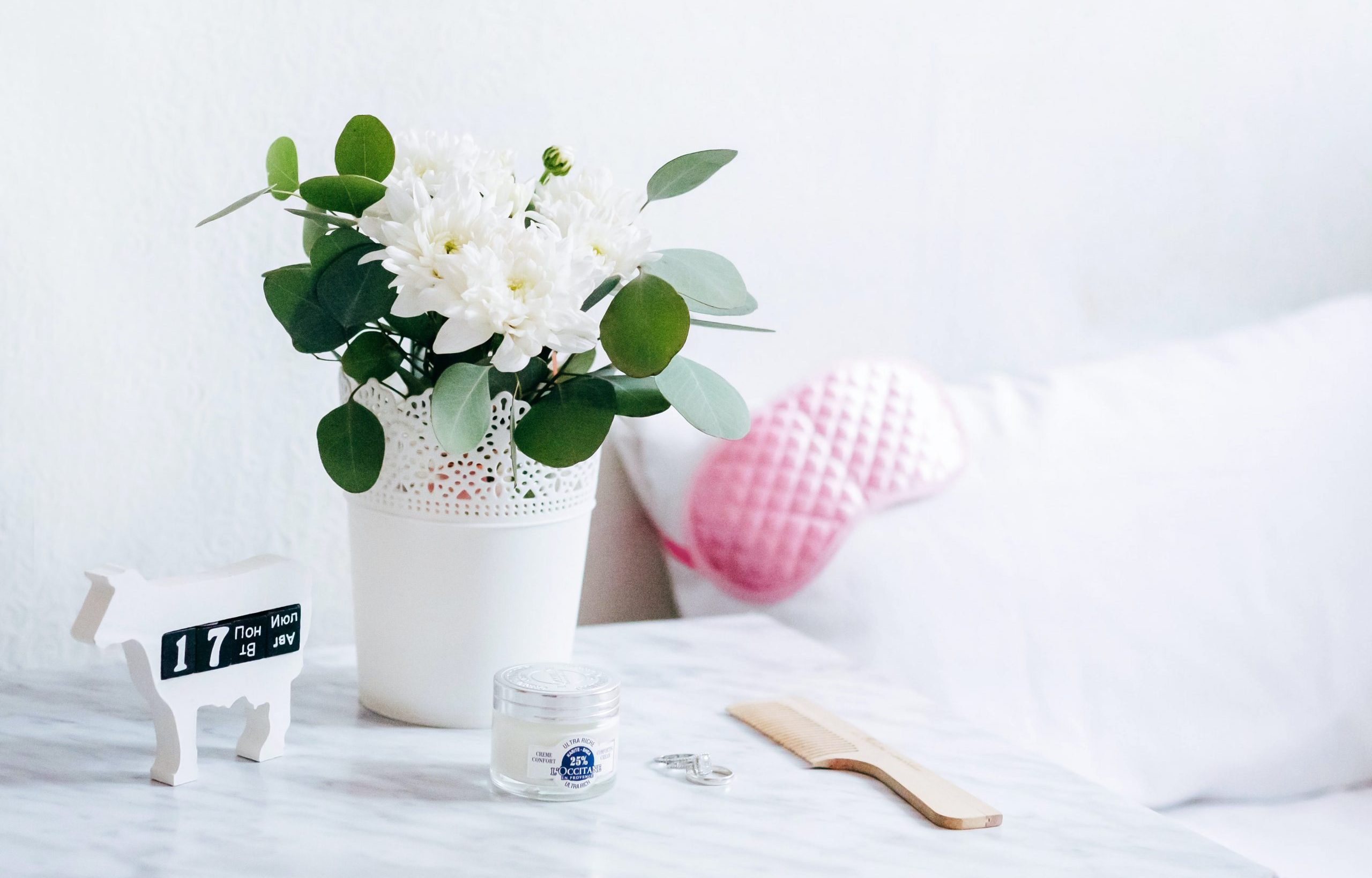

It’s probably no surprise that regularly getting less than 7 hours of sleep affects your health and well-being in several ways. Sleep deficit can result in:
That’s why we compiled a list of tips to help you build a relaxing bedtime routine for better sleep:
Research has consistently shown that routines can play an important role in contributing to our overall health and well-being. A routine is a regular set of actions leading a person to a specific goal or location. We follow routines in our everyday life with little thought, like when we get dressed in the morning, eat meals, and even when we drive to work.
If you follow the same routine every day, day after day, and week after week, you eventually become accustomed to or comfortable with that routine. In a real sense, it removes the decision anxiety and stress you would encounter by trying to do these same tasks in a completely different way each day. As such, a bedtime routine helps you relax, encouraging your body and mind to prepare for a good, restful night.
The American Psychological Association suggests against spending time either after work or before bedtime rehashing what happened to you during the day. Leave work experiences at work. Instead, concentrate on the things you like to do. Read a book, take up a hobby, visit friends and family, take a walk, or take a shower. Find an activity to mark that the work day is done.
A heavy workout before bed may actually work against you. Rather, try stretches and relaxing exercises such as some gentle yoga postures or light pilates. This 20 minute series of releasing exercises is great for relaxing your muscles and quieting the mind.
According to the Mayo Clinic, setting an alarm is one of the best tricks for your bedtime routine – but almost no one does it! When the alarm sounds, stop what you are doing and start winding down. Switch over to watching a movie, enjoying a TV show, or catching up on social media. But whatever activity you were doing, let it go and come back to it tomorrow.
Nutritionists suggest eating dinner at least 3 hours before bed. However, this can vary between individuals. Each person digests food at different speeds, so pay attention to the sensations in your body and make adjustments accordingly. If your digestion is active at bedtime, try eating a little earlier. If you find yourself hungry at night, have a light, healthy snack. Studies found that unsaturated fats in heart-healthy foods like peanut butter can boost serotonin levels, which helps the body relax.
Consuming too much caffeine during the day allows it to build up in your system, making it difficult to sleep. Even if you don’t take a lot of caffeine during the day, it should be completely avoided within 6 hours of going to bed. Caffeine is found in coffee, tea, chocolate, and sodas.
Alcohol, though technically a depressant, is another substance that hinders sleep. A drink or two may initially induce sleepiness, but will disrupt the balance of slow-wave and REM sleep – leading to poorer sleep quality and morning grogginess.
“Water-based passive body heating” is the scientific term for taking a warm bath or shower. Doing this 1-2 hours prior to bedtime relaxes the body and significantly improves the speed of inducing sleep. Make your bath fun and soothing with fragrant soaps or scented candles.
If you find yourself mulling over what you have to do tomorrow and worrying about future activities, keep a notepad next to your bed. When any of those thoughts arise, just write them down and revisit them when it’s time to take action. You can’t and shouldn’t try to work on them in bed. Getting your clothes ready for tomorrow will also reduce the stress of having to make small decisions first thing in the morning.
Listening to a bedtime playlist helps you to start letting go of mental attachments. Psychology studies show that listening to music can help encourage sleep and improve sleep quality. In one sleep study, 62 percent of participants reported that using music in their nightly routines helped reduce stress. Classical music in particular has been found to help with sleep. Try experimenting with other forms of relaxing music or sounds of nature such as rain, waves, and birds.
Did you know there are sound generators that play sounds with varying frequencies? These color frequencies help slow thoughts, relax muscles, and dissolve anxiety. You can download a color noise app or explore different color noise channels on YouTube. Then put on your headphones and slide into bed. Examples of these frequencies are white noise like snow on a TV screen, softer pink noise such as the sound of falling rain or snow, and brown noise, which is deep and soothing like the ocean.
TV, computer, and hallway lights should all be turned off at bedtime. Also, make sure your blinds or drapes effectively block out light. Light confuses our bodies about the actual time and in turn, disturbs our circadian rhythm. A small area in our brain called the circadian pacemaker is powerfully affected by light. Light decreases the production of melatonin, the hormone that makes us drowsy and stimulates sleep. Varying wavelengths of light have differing effects on sleep. For example, blue light emitted by computer screens, cell phones, laptops, and LED lights suppresses melatonin. Do your brain a favor and stay away from computers for at least an hour before sleep.
The National Sleep Foundation found room temperature was one of the most important factors in getting a good night’s sleep. The ideal temperature is 65°F (18°C) with a suitable range between 60°F and 67°F. (15.6°C – 19.4°C). Just like the light-based circadian rhythm, our bodies have a daily rhythm that’s based on temperature. The body naturally begins to cool down at night, coinciding with the release of melatonin. While sleeping, our core temperature continues to fall, which affects the sleep stages. A higher core temperature decreases the time spent in restorative slow-wave and REM sleep, leading to fatigue, hypertension, and grogginess. No wonder we go to bed with the blankets up to our necks, but wake up practically uncovered. Our body instinctively tries to drop its core temperature for better sleep!
Certain essential oils have been shown to soothe feelings of anxiety and can be a powerful way to relax and sleep better. Though research on the use of essential oils is limited, lavender essential oil is widely recognized as a natural sleep aid. For example, a 2005 study assessed how lavender essential oil affected 31 young, healthy sleepers. Researchers found that lavender increased the amount of slow, deep-wave sleep in participants. All participants reported feeling higher vigor the next morning.
Meditation is one of the most effective ways to improve sleep. Research has demonstrated that meditation practices support the body’s circadian rhythm to induce sleep. It’s important to take time daily to clear our mind of all the chatter and clutter from the day’s activities. We need to go to the bathroom every day to clear our bodies of waste. Likewise, it’s equally necessary to take time to clear our minds – and right before bed is the perfect time to do it. Turn your phone off completely while you’re meditating so that you’re not disturbed.
In 2014, Harvard University conducted a scientific study in which 98 people older than 49 were divided into two groups, a control group and test group. They all suffered from high blood pressure, pain, depression, or insomnia. The control group was told to try relaxing after work and then go to sleep. The test group was provided with a simple sleep routine which included a guided mindfulness meditation practice six times a week for two-hour sessions. Those in the test group showed a substantially longer sleep time than the control group, along with a decline in sleep problems.
The benefits of starting a meditation practice go even beyond helping with sleep. Studies suggest that mindfulness practices may help people manage stress, cope better with serious illness, and reduce anxiety and depression. Many people who practice mindfulness report an increased ability to relax, a greater enthusiasm for life, and improved self-esteem. A study
by the National Institute of Health (NIH) found measurable improvements in the condition of the brain areas related to memory, learning, and emotion. The NIH also found that meditation reduced hostility and improved relationships. Still another study found that meditation made people more aware of mindless habits like snacking and decreased the tendency to give into such habits without thinking. As a result, people who meditated were better able to control their weight because they ate more consciously, enjoying it more and eating only when hungry. In the end, many of these additional benefits of meditation contribute to better sleep.
If you tried everything and still find yourself lying awake, it’s important to not worry about it. Anxiety over sleep only compounds the worry you already have about being unable to sleep. Accept the fact that your mind wanders. Then calmly focusing it will bring relaxation and sleep. You can try more meditation or mental relaxation exercises like breathing slowly and deeply while telling your body to relax, one body part at a time, from your head to your toes and then back to your head. Focusing your attention by using mantras or prayers can also be helpful.
You might find that a long-term meditation practice is extremely effective in relieving stress, anxiety and excessive thinking. Meditation makes falling asleep easier and it eliminates bad habits to improve your waking life as well.
Here at Online Meditation Events, we designed a special class to help you easily incorporate meditation into your nighttime routine for better sleep! Get started, join the community, and sleep better with Online Meditation Events.
Written by Bill




